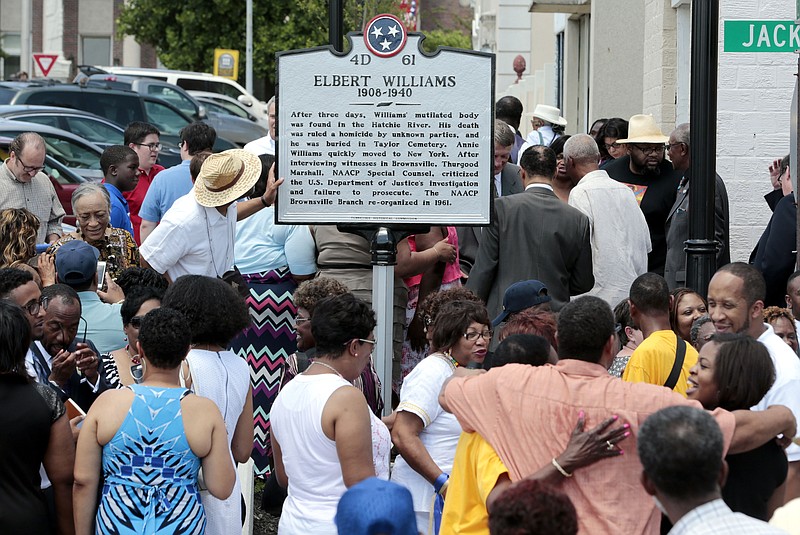MEMPHIS, Tenn. (AP) — More than 78 years after civil rights worker Elbert Williams’ body was found in a Tennessee river, a district attorney announced Wednesday he is reopening the investigation into the slaying.
Haywood County DA Garry Brown said his office is launching an investigation into the death of the 32-year-old black man, whose body was found in a Brownsville river in June 1940, three days after being taken from his home by a group of men led by a police officer.
“We cannot do all in 2018 that should have been done in 1940, but justice and historic truth demand that questions about the cause of Elbert Williams’ death, and the identity of his killer(s), that should have been answered long ago, be answered now if possible,” Brown said in a statement. “We will do what we can.”
The Department of Justice initially ordered the case be presented to a federal grand jury, then mysteriously reversed itself and closed the case in early 1942. A U.S. attorney in Memphis declined to re-open the investigation in 2017, after a request from Williams’ relatives and Jim Emison, a lawyer who became intrigued by the case.
An NAACP official has called Williams “the first martyr of the NAACP.” No one was ever charged in the case, and Williams’ grave has not been found, though it is believed to be in a cemetery near Brownsville.
It was not immediately clear if Brown has new leads or if new evidence has been discovered.
The move comes about three weeks after the U.S. government renewed its investigation into the 1955 slaying of Emmett Till, a 14-year-old black boy from Chicago who was visiting relatives in Mississippi when he was brutally killed.
Former U.S. Attorney Edward Stanton III said in a February 2017 letter to Williams’ family that his office could not reopen the investigation because more than 75 years had passed since the crimes and many if not all of the potential witnesses have died. He also wrote the statute of limitations for any federal crime had long expired.
However, there is no time limit on first-degree murder charges in Tennessee. Brown said the case falls under Tennessee’s new Civil Rights Crimes Cold Case Law, which mandates a statewide survey of cold civil rights crimes and directs referral of viable cases for prosecution.
Brown’s investigators plan to team up with a University of Tennessee forensic scientist to look for Williams’ grave. Emison and others believe exhuming the body could lead to a murder weapon. Williams’ wife said she saw what looked like bullet holes in his chest. A relative is providing a DNA sample to help identify the body, Emison said.
Williams was killed more than two decades before NAACP leader Medgar Evers was gunned down by a Klansman outside his Jackson, Mississippi, home in 1963, but has received far less attention than the slayings of Evers and Till.

